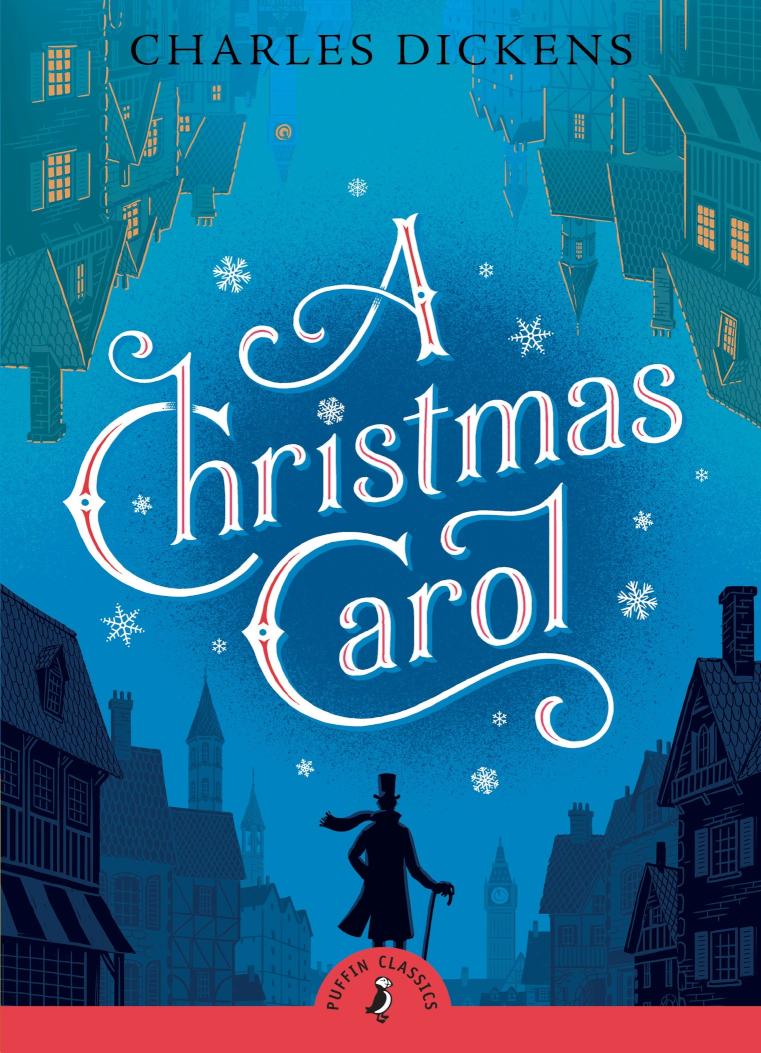
Old Ebenezer Scrooge does not like Christmas. On the eve, he turns out two men seeking a donation, rebuffs his nephew’s invitation to dinner and grudgingly gives an evening off to his only employee.
That night, his long dead business partner’s ghost comes and shows him three visions…
- … of the past where he was rejected by his fiancee Belle because of his love of money, and how she is now happily married with a large family,
- … of the present, where his employee’s son, Tiny Tim, is seriously ill and will die soon without any intervention,
- … and of the future, where Scrooge is dead, and no one mourns him, but are busy divvying up his possessions and.
Deeply affected, Scrooge resolves to change his ways; he makes the rejected donation, he spends the afternoon with his nephew and gives a raise to his employee. He treats others with kindness, generosity and compassion, and embodies the spirit of Christmas.
This short novella was almost directly responsible for making Christmas the season for charitable giving, and indeed, a revival of Christmas as a celebration in an increasingly industrialized Victorian society. Several phrases from the book entered into common parlance, not the least of which was “Scrooge” meaning miserly.
There are several adaptations of this book, in radio, screen, and stage. For several households, Christmas is incomplete without a retelling of this story in some form. For that reason alone, I chose to read it in early June, as far away from Christmas as possible. Odd to think that the commercial juggernaut that Christmas has become today can be traced to this one book written nearly 200 years ago.
